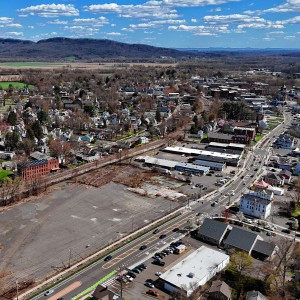Guest columnist Jonathan Kahane: Can’t let mistaken criticisms of column go unanswered

An Israeli soldier takes up position on the border with the Gaza Strip in southern Israel, Monday, Jan. 29, 2024. AP PHOTO/TSAFRIR ABAYOV
|
Published: 01-31-2024 6:33 PM
Modified: 01-31-2024 10:53 PM |
By JONATHAN KAHANE
Now that some of the dust has settled since my last guest column [“Haunted by questions with no good answers,” Gazette, Dec. 28], I will take this opportunity to try and rectify distortions that were submitted in letters during the past month and present my perspective regarding my essay dealing with the horror that continues in the Middle East.
After all, the “dust” hasn’t settled there yet. I will endeavor to support my views with facts rather than generalizations.
I will preface my remarks by saying that like virtually everyone else, I want the killing and destruction to end — immediately. I also desire to make clear that I am not a supporter of Israel Prime Minister Benjamin Netanyahu, rather a supporter of Israel’s basic right to exist.
Since Israel’s founding as a state in May 1948 as ratified by U.N. Resolution 181 on Nov. 29, 1947, the Arab countries surrounding her have stated their desire to destroy it and its people, its Jewish people. I firmly believe that the fighting will stop, and an independent Palestinian state will be recognized, when Israel’s neighbors agree that it has the fundamental right to exist.
I base this opinion on the result of the Camp David Accords of 1978, when Egypt agreed to recognize Israel. They are not combatants in the present conflict, much to the chagrin of Hamas, I might add.
I am currently in Europe, and the news media here has repeatedly shown Palestinian demonstrators holding signs stating, “A Free Palestine, from the River to the Sea.”
Article continues after...
Yesterday's Most Read Articles
 More than 130 arrested at pro-Palestinian protest at UMass
More than 130 arrested at pro-Palestinian protest at UMass
 Public gets a look at progress on Northampton Resilience Hub
Public gets a look at progress on Northampton Resilience Hub
 Northampton bans auto dealerships near downtown; zone change won’t affect Volvo operation on King Street
Northampton bans auto dealerships near downtown; zone change won’t affect Volvo operation on King Street
 UMass basketball: Bryant forward Daniel Rivera to be Minutemen’s first transfer of the offseason
UMass basketball: Bryant forward Daniel Rivera to be Minutemen’s first transfer of the offseason
 Town manager’s plan shorts Amherst Regional Schools’ budget
Town manager’s plan shorts Amherst Regional Schools’ budget
 Police respond to alcohol-fueled incidents in Amherst
Police respond to alcohol-fueled incidents in Amherst
Do I need to explain what that means? This action was even conducted by Palestinians on Jan. 27 in several countries around the world as they confronted Jews commemorating the anniversary of the liberation of Auschwitz. I wonder if U.S. news reports include this information.
Now to the specific criticisms:
One writer wrote that it was a “grave mistake to view the recent actions of Hamas as motivated by antisemitism.” I will quote Article 7 from the Hamas’ “Covenant” which is referred to as the “Antisemitism Article”:
“The Day of Judgment will not come about until Moslems fight Jews and kill them. Then, the Jews will hide behind rocks and trees, and the rocks and trees will cry out: ‘O Moslem, there is a Jew hiding behind me; come and kill him.’” I believe it is a “grave mistake” to view this statement as anything other than antisemitism. Perhaps it’s even calling for genocide.
Another distortion of my essay attempted to cite historical events to demonstrate Israel’s “apartheid regime.” In fact, from day 1 of its creation, Israel and its Jewish population have been exposed to constant attack from its neighbors. As any other nation in that situation would do, it has been defending itself.
In an attempt to account for the lack of protests by Palestinians against Hamas, a reader stated that the obvious reason for this is the “merciless oppression and violence” that would ensue. I agree. That is why I mentioned the protests by citizens in China and Russia who faced similar threats. Maybe I should have been more specific and mentioned Tiananmen Square or Alexei Navalny and all of his supporters. There are countless more examples.
One additional comment was made claiming that the debate about dropping the atomic bombs saving American and Japanese lives is “absurd and dangerous mythology” and “widely discredited.” This is not accurate. It is certainly debatable, but the recent highly acclaimed book, “Road to Surrender” by the highly regarded author and historian Evan Thomas published on May 16, 2023 presents a convincing argument that it is not “absurd.” I agree that it is “dangerous,” but that doesn’t make it wrong. His conclusion is that the bomb most definitely saved lives and should never be used again.
There is so much more to be said here, but this is not the best stage to go into the long history of the problem, a history more than 5,000 years old.
I doubt that the above evidence will change anyone’s opinion on the matter, but if it makes some think a bit more about what is going on in the Middle East I’d be satisfied — for now.
Jonathan Kahane lives in Westhampton.

 Guest columnist Phil Wilson: Let us pick local town officials by sortition
Guest columnist Phil Wilson: Let us pick local town officials by sortition Karen Foster Cannon: Michael Stein does not speak for me
Karen Foster Cannon: Michael Stein does not speak for me Joseph Morse: So much to be thankful for
Joseph Morse: So much to be thankful for Letter: It's not Us vs Them
Letter: It's not Us vs Them
